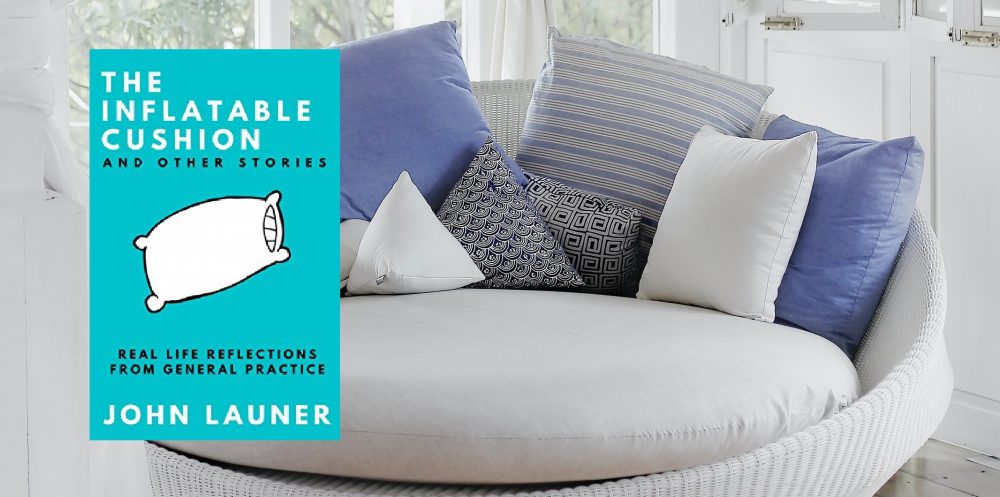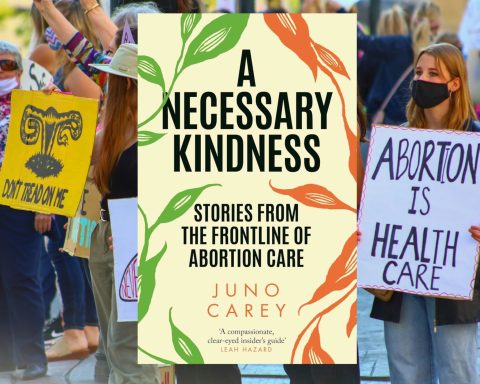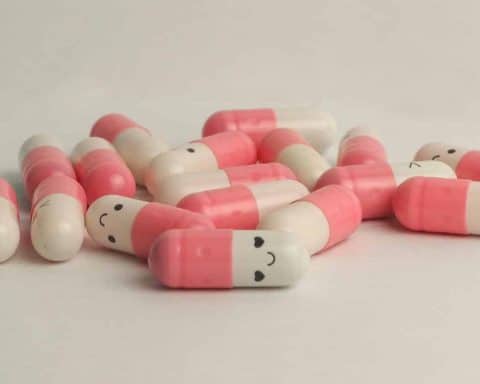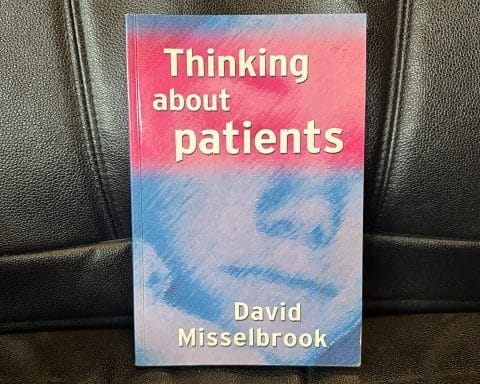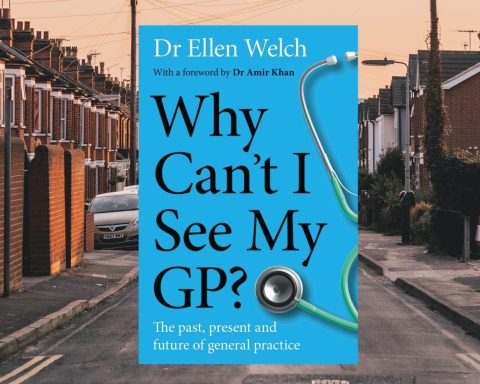
The book’s title describes Dr Launer’s attempts to request an inflatable cushion to prevent pressure sores for an elderly patient. He reflects that “there is something about inflatable cushions that reminds people of GPs: expandable whenever needed, and available for everyone’s comfort”: our resourcefulness resists any jobsworth, “constipated” bureaucracy.
The book is a chandelier of 88 crystals: sparkling, reflective stories are told with honesty and hilarity. Each one is memorable and topical. Dr Launer’s experiences and patients echo my own. For example, “Surgery rage” is a tale of how chronic excessive workload may provoke compassion fatigue.1 I thought about the facets of humanity and safety in the workplace. Within two minutes, Dr Launer had reassured me that “rage” even happens to GPs with 38 years of experience. Importantly, it gave me permission to admit to harbouring similar emotions when ‘extras’ are added to my patient lists – insight: a vital step towards identifying the triggers of moral distress2 and shedding its burden.
There is something about inflatable cushions that reminds people of GPs: expandable whenever needed, and available for everyone’s comfort.
“Sleek with health” reminds the reader of the chasm between self-deceptive official NHS rhetoric and the daily apologies that doctors make to their patients about healthcare services. The NHS is lauded as a flagship, and the Queen praised us, saying:
“It is with great pleasure, on behalf of a grateful nation, that
I award the George Cross to the National Health Services.
This award recognises all NHS staff, past and present.
You have supported the people of our country with courage, compassion and dedication, demonstrating the highest standards of public service.
You have our enduring thanks and heartfelt appreciation”
How do I rationalise toxic positivity3 with a 73-year old sinking ship4 and maintain calmness? Perhaps a solution is to reframe and think through Frankl’s tragic optimism:4
“An optimism in the face of tragedy and in view of the human potential which at its best always allows for:
(1) turning suffering into a human achievement and accomplishment;
(2) deriving from guilt the opportunity to change oneself for the better; and
(3) deriving from life’s transitoriness an incentive to take responsible action”
“A bribe” describes potential pitfalls for patients giving gifts to their doctors. How do we know if it is driven by genuine generosity or ulterior motives? I must confess that this book was a present from Dr Perera “for inspiring those unwritten articles and stories”: what loving-kindness from a friend @DrsMess, who is a GP, Trainer and Programme Director.
….. the chasm between self-deceptive official NHS rhetoric and the daily apologies that doctors make to their patients about healthcare services.
Dr Launer dedicated this book to the memory of Dr Singer6 so that he will live on in the hearts of those who read these stories. He also promises that “all profits from this book will go to the Trussell Trust to support food banks in the UK”.
Last week, I signposted a homeless 22-year old man to the Trussell Trust’s local food bank. He thanked me for the advice. He sounded more hopeful for the future. It was even more poignant when I thought about how he had emailed the housing officer the preceding day expressing suicidal thoughts. I felt as though I shared my “inflatable cushion” with him.
Let’s bring an “inflatable cushion” to work tomorrow and shower our colleagues and patients with limitless compassion, calmness, loving-kindness and appreciative joy.
References
1. https://www.ncbi.nlm.nih.gov/pmc/articles/PMC4924075/
2. https://www.bma.org.uk/media/4209/bma-moral-distress-injury-survey-report-june-2021.pdf
3. https://www.bbc.com/worklife/article/20210302-tragic-optimism-the-antidote-to-toxic-positivity
4. https://www.bma.org.uk/advice-and-support/nhs-delivery-and-workforce/workforce/medical-staffing-in-england-report
5. https://www.nhs.uk/common-health-questions/infections/how-should-i-collect-and-store-a-urine-sample/
6. https://www.theguardian.com/society/2020/aug/05/ron-singer-obituary
Featured photo by Hutomo Abrianto on Unsplash

